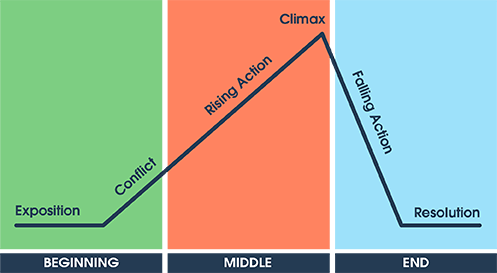Elements of Shakespeare Romances

U kunt deze storyboard in de volgende artikelen en middelen te vinden:

Soorten Shakespeare-spelen
Door Rebecca Ray en Kristy Littlehale
Het maakt niet uit wat ze genoemd werden, William Shakespeare's toneelstukken zijn nog steeds geweldige kunstwerken, dus het maakt niet uit wat we ze noemen. Over het algemeen schreef Shakespeare drie soorten spellen: Tragedie, Komedie en Geschiedenis. Deze namen helpen ons de archetypen van een toneelstuk te begrijpen en zijn gebeurtenissen beter te analyseren. Immers, de komedie van Romeo en Juliet zou een heel ander spel zijn van The Tragedy of Romeo en Juliet. Misschien zou het een farce zijn over twee ster-gekruiste liefhebbers, gedoemd om te lijden aan humoristische fouten van identiteit en knuffelende bedienden. Het zou niet het verhaal zijn van de wee, die we allemaal zo vertrouwd zijn.
'
Bekijk enkele van onze andere educatieve artikelen!
Storyboard Beschrijving
Elements of Shakespeare Romances | Shakespeare's Tragicomedies
Storyboard Tekst
- Shakespearean Romances
- Shakespeare's Romances are characterized by: A conflict that gets resolved A central older male figure of noble descent A love interest Elements of the Supernatural Themes on a Grand Scale
- Conflict Begins the Play / Resolved by the End
- Central Older Male Figure of Nobility
- Examples from The Tempest by William Shakespeare
- Love Interest
- On the way home from Alonso's daughter's wedding, a storm strikes their ship and shipwrecks Alonso, Ferdinand, Antonio, Gonzalo, Stephano, Trinculo, and Sebastian on an island. The men are split up, and Alonso thinks Ferdinand is dead.
- Elements of the Supernatural
- Prospero, Antonio, and Alonso. Prospero was the Duke of Milan before his brother Antonio (in a plot with Alonso, the King of Naples) usurped his throne and forced him to flee.
- Themes on a Grander Scale
- Miranda, Prospero's daughter, and Ferdinand run into each other on the island, and they instantly fall for one another. This is part of Prospero's plot to take back his rightful place as Duke of Milan.
- Prospero has been studying sorcery for the 12 years he's been exiled. He causes the tempest to bring the boat with his brothers to the island. Ariel turns himself into a sea nymph and controls some of the men with music.
- While Prospero regains his throne, the theme of the play looks at restoration and forgiveness on a grander scale. If Prospero can forgive his brother's treachery, surely it is possible for real people to do the same. In doing so, both peace and stability are rewards for forgiveness. Instead of pursuing pure revenge, Prospero curbs his bloodlust and still regains his power.
Meer dan 30 miljoen storyboards gemaakt




